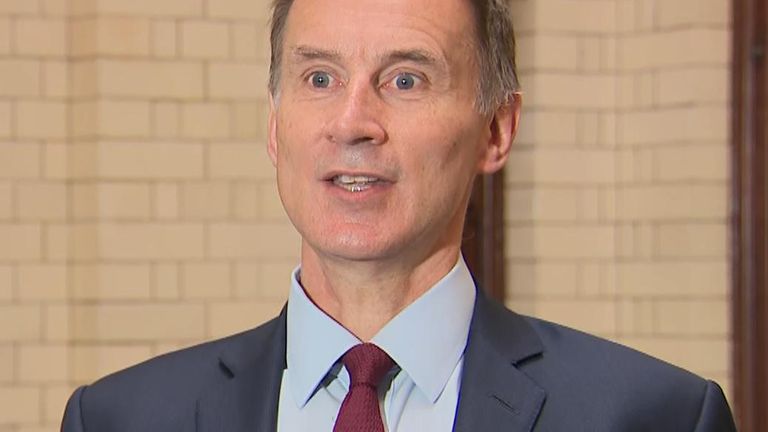Inflation is running at close to four times the Bank of England’s 2% target, but today’s data gives us something to celebrate.
The consumer prices index (CPI) fell in June to 7.9%, down from 8.7% in May.
Economists were pencilling in a drop to 8.2%, so this means inflation is falling faster than expected.
It is broadly in line with the forecasts published by the Bank of England back in May. These anticipated an inflation rate of 8% at this time of the year.
And it comes as a welcome surprise to the government, which has made halving inflation by the end of the year – from 10.5% – its main policy aim.
This is also reversal of fortune. Over the past four months, inflation has consistently overshot forecasts, piling pressure on the Bank of England to raise interest rates.
The Bank rate currently stands at 5% but, if things go to plan, it may not rise much further.
Before the latest figures were released financial markets were expecting the Bank’s base rate to peak early next year at 6.25%, the highest level since 1999.
That has come right down to 5.75%.
That being said, the Bank is still likely to raise rates next month because wage pressures in the economy are strong. Private sector pay rose to 7.7% in May, while public sector wages nudged up to 5.7%.
This is something policymakers are sensitive to because robust wage growth risks spurring inflation even higher, and that risk has risen now that the government has promised to grant pay rises of between 5% and 7% to millions of public sector workers.
However, the positive news on inflation today means that a smaller increase may be needed next month than previously anticipated.
Financial markets are now pricing a quarter of a percentage point increase to 5.25% next month instead of half a percentage point increase.
That should offer some relief to the 1.4 million homeowners who are coming off their fixed-rate mortgage deals this year.
The improved outlook should filter through into the price of mortgages quickly so deals will be cheaper but, with the Bank rate at 5% or higher, remortgaging is still going to be painful.
A recent report by the Institute for Fiscal Studies, a leading thinktank, suggested these 1.4 million households could lose as much as 20% of their disposable income after re-mortgaging.
So, things aren’t great, but at least they’re not getting any worse.

